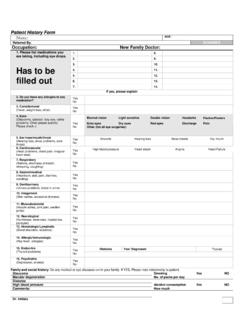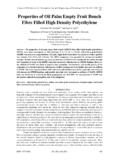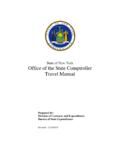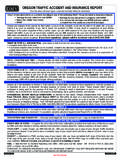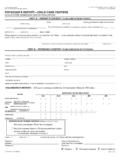Transcription of After the G-Zero: Overcoming fragmentation - Eurasia Group
1 After the G- zero : Overcoming fragmentationFALL 2016 Ian BremmerGLOBAL RESEARCH PROFESSOR, NEW YORK UNIVERSITYPRESIDENT, Eurasia GROUPThe views expressed in this paper are those of the author(s) only, and the presence of them, or of links to them, on the IMF website does not imply that the IMF, its Executive Board, or its management endorses or shares the views expressed in the Ian BremmerGlobal Research Professor, New York UniversityPresident, Eurasia GroupFALL 2016 After the G- zero : Overcoming fragmentationContentsExecutive summary 3 Geopolitics: The end of a cycle 4 The end of politics as you knew it 5 Domestic politics are no longer the same 5 Regional dynamics are changing 9 New political players are rising 12 International relations are mid-transformation 13 Saving global governance from the G- zero 15 What the G- zero means for global governance 15 What comes next? 18 Conclusion 21 Endnotes 23eurasia Group | 3 Executive summary It is commonly understood that the world is working through a period of new normal economics the bot-tom of an economic cycle, characterized by durably slow growth.
2 Far less appreciated is that we are also at the bottom of a longer-term geopolitical cycle. The global order that prevailed since the end of the Second World War has hit its limits. A breakdown in longstanding domestic, regional, and international political equilibria is making policymakers both less able and less willing to collaborate internationally. The result: a G- zero world characterized by a growing vacuum in global governance. But this breakdown will not continue forever. Soon-er or later, the G- zero will give way to whatever new world order comes After it. The question is whether citi-zens across the world will remain passive throughout this process, or take on a proactive role in determining what future they want to live current fracturing of international governance along with growing grievances over the values underpin-ning the Bretton Woods order, has already led emerging powers to begin creating new and alternative institu-tions of global governance, as their power and influence in global institutions is not keeping pace with their growing international importance and interests.
3 Instead of focusing on whether this trend should be feared or welcomed, observers would do well to recognize that it will persist regardless and that there is more to be achieved by interconnectedness and cooperation than ever. Yet not all of these alternative institutions will be morally equal: some will make valuable contributions to a world that increasingly requires coordinated inter-national action to solve festering problems, while others will remain little more than whimsical attempts at enhancing selfish national stand at a turning point. Stepping forward, international fragmentation could damage the functioning of key global regimes beyond repair. Or this newfound heterogeneity could become a strength, building on re-cord global firepower. The balance will tip one way or the other depending on whether nations make the effort to stop talking past one-another and instead begin to address each-others deep-seated insecurities.
4 The West will have to stop abusing its dominant historic position before it is too late. While emerging powers must real-ize that they, too, have much to lose from a broken world. The recipe to save global governance doesn t require genius. It requires goodwill. After the G-Zero: Overcoming fragmentationeurasia Group | 4 After THE G2 zero : Overcoming FRAGMENTATIONG eopolitics: The end of a cycleIt has become common to say the world is passing through a period of new nor-mal economics characterized by durably sluggish Far less understood is that we have also reached the end of a geopolitical cycle. The global order that emerged from the Second World War is reaching its limits. Until a new model of global governance emerges, the world will remain in a period of uncharacteristic political crises occur often and with regularity. Geopolitical cycles are far lon-ger measured in the order of decades, sometimes centuries.
5 Often outliving their expiration date, failed geopolitical orders can grind the world to a halt under the weight of their ineffectiveness. We stand at one such point today. Conventional wisdom posits that the transition out the Cold War era in the 1990s represented the end of a geopolitical cycle. In fact, the end of bipolarity confirmed rather than upturned the framework of post-World War II global governance. By putting an end to a forty-year ideological battle, the collapse of the USSR opened the way for a doubling down on the Bretton Woods order. The conversion of the General Agreement on Tariffs and Trade (GATT) into a full-blown World Trade Organiza-tion (WTO) is a prime example of this past few years, on the other hand, have opened an unprecedented breach in the postwar American order. Costly Middle Eastern interventions have left Ameri-cans less willing to project power abroad, while a sluggish economic recovery and the parallel geopolitical and economic rise of China have reduced Washington s ability to lead in the rare times it wants to do so.
6 The result is a G- zero : a period in which no-one It s no longer America s world, but neither has it become anyone else s. We live in an awkward geopolitical no-man s land in which it is clear the unipolar moment has ended, but what will replace it remains will be tempted to passively ride out these next few years of uncer-tainty, but doing so surely wouldn t be judicious. Whether you re the citizen of a historically stable developed market or that of rising emerging one, there s a good chance you ve felt the jitters of growing political instability already. If you haven t, it won t be long. With few structures in place to moderate geopolitical tensions in the coming years, we all have an interest in better understanding the changing political landscape around us. So do we all have an interest in doing our part to ensure that whatever comes next whatever replaces the G- zero isn t a new order imposed upon us, but one that citizens around the world have had a collective say in paper is intended to give its readers the means to form an opinion on what they want that future to look like, and to act on it.
7 In the spirit of never letting a good crisis go to waste,4 the paper starts by presenting the major ways in which politics as we knew it has disappeared, before offering some thoughts on a way forward for global governance. The goal is not to blindly defend the Bretton Woods system nor naively herald its new competitors. Instead, it is to bridge a growing gap between entrenched interest groups in an oversimplified conflict between competing Group | 5 After THE G2 zero : Overcoming FRAGMENTATIONThe end of politics as you knew itWhat does it mean for a geopolitical order to reach its end? Fundamentally, such transitions occur when the key constituent institutions underpinning a geopolit-ical system have decayed to such extent that they have become unrecognizable and often dysfunctional. This is happening today to the order that emerged from World War II. Below, we consider this current state of disrepair, and consider how, taken collectively, these various pieces of chaos add up to a politics are no longer the sameLongstanding political spectrums are breaking down in developed marketsDeveloped markets used to differ from their emerging peers in that their politics were largely stable and predictable in their market outcomes.
8 That is no longer true. If an emerging market is defined as one in which politics matter at least as much as economics to market outcomes, then to say that we are all emerging markets would only be a slight exaggeration today. Developments since the glob-al financial crisis have caused the United States and European Union s vaunted statuses as financial safe havens to be repeatedly questioned. A short list of such events would prominently include the US s repeated debt ceiling incidents and Greece s ongoing financial leading reason for this turn of events has been the breakdown of long-standing political frameworks in these advanced economies, causing greater uncertainty over what falls within the realm of possible political outcomes. The values that once constrained the realm of plausibility have been overturned. Mainstream parties and candidates in liberal democracies have seen major defeats on three levels. First, fringe parties and candidates have in several places fully ascended to power, becoming incumbents in their own right: the best example of this trend being Alexis Tsipras and his Syriza party in Greece.
9 Second, fringe figures have taken over or reshaped politics within established parties: the Tea Party, followed by Donald Trump, within the US Republican Party; Bernie Sanders within the Democratic one; Jeremy Corbyn within the United Kingdom s Labour Party. Third, even in countries where centrists have remained in power, those actors have increasingly made their message more populist in an attempt to outflank increas-ingly reactionary constituencies. French former President Nicolas Sarkozy has long been accused of tacking to the right in fear of being outflanked by the Front In the , many speculate that Prime Minister David Cameron offered up a referendum on his country s EU membership as a tactical measure to fend off the UK Independence Party s (UKIP) growing appeal to British Ger-man Chancellor Angela Merkel has been criticized for considering economically costly policies as a means of undercutting her Alternative for Germany (AfD) And in the US, presidential candidate Hillary Clinton s decision to criti-cize the Trans-Pacific Partnership (TPP)
10 Has been interpreted by many observers as a reaction to the rising anti-trade sentiment among her potential connecting thread among these assorted political movements is that the rad-icalization and atomization of politics in developed markets is making it harder for traditionally stable countries to deliver on the type of governance required by markets to thrive. Ironically, even the up-and-coming parties behind this desta- Eurasia Group | 6 After THE G2 zero : Overcoming fragmentation bilization may face a hard time maintaining internal cohesion, as evidenced by divisions with a party such as Podemos in GermanyAfD, STAR, LEAGUE, , DAWN, FINNS, KingdomUKIP, FEIN, FRONT, , BLOC, PARTY OF PORTUGAL, DEMOCRATS, PARTY, PEOPLE S PARTY, , , , PARTY OF AUSTRIA, , 29%CountryFRINGE PARTY, Average polling from August 2016 Ruling party in red1 Polls from July 20162 Polls from June 2016 Source: BBC, Eurasia GroupFringe parties and refugee numbers are growing in EuropeAn expectations-capabilities gap is boiling in emerging marketsThe first decade of the 21st century was characterized by a growth supercycle in emerging markets11 that propelled many of these countries populations toward mid-dle class status (or, at least, out of poverty12).






